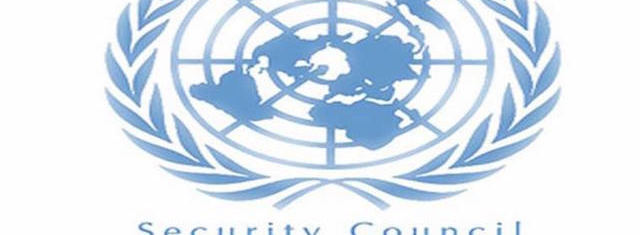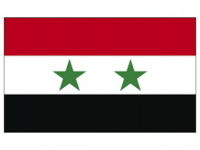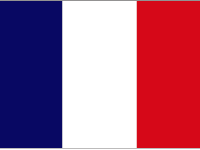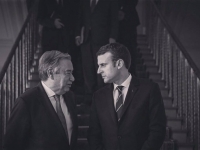News
UN SECURITY COUNCIL FOLLOWING AIR STRIKES REJECT PROPOSAL TO CONDEMN AGRESSION
AGAINST SUSPECTED CHEMICAL WEAPONS SITES

UN Security Council logo (Source: UN Security Council )
USPA NEWS -
On the heels of air strikes meant to hamper Syria´s ability to use chemical weapons, the Security Council today rejected a proposal by the Russian Federation to condemn such aggression by the United States and its allies over suspected chemical weapons use in the country, amid pressure from the Secretary-General to abide by the tenets of international law. The draft resolution “” which was defeated by a recorded vote of 8 against (Côte d´Ivoire, France, Kuwait, Netherlands, Poland, Sweden, United Kingdom, United States) to 3 in favour (Bolivia, China, Russian Federation), with 4 abstentions (Equatorial Guinea, Ethiopia, Kazakhstan, Peru) “” would have demanded the United States and its allies immediately cease such actions and refrain from any further use of force in violation of international law.
On the heels of air strikes meant to hamper Syria´s ability to use chemical weapons, the Security Council today rejected a proposal by the Russian Federation to condemn such aggression by the United States and its allies over suspected chemical weapons use in the country, amid pressure from the Secretary-General to abide by the tenets of international law.
The draft resolution “” which was defeated by a recorded vote of 8 against (Côte d´Ivoire, France, Kuwait, Netherlands, Poland, Sweden, United Kingdom, United States) to 3 in favour (Bolivia, China, Russian Federation), with 4 abstentions (Equatorial Guinea, Ethiopia, Kazakhstan, Peru) “” would have demanded the United States and its allies immediately cease such actions and refrain from any further use of force in violation of international law.-----------------------------------------------
It also would have expressed grave concern that such acts had taken place at a time when the Organisation for the Prohibition of Chemical Weapons (OPCW) fact-finding mission had begun to collect evidence in the Syrian city of Douma. Briefing the Council, Secretary-General António Guterres said it was his duty to remind States of their obligation, particularly in peace and security matters, to act consistently with the Charter of the United Nations and with international law in general.
“I urge all Member States to show restraint in these dangerous circumstances and to avoid any acts that could escalate matters and worsen the suffering of the Syrian people,“ he asserted. “If the law is ignored, it is undermined.“ Speaking before the vote, the representative of the Russian Federation said his Government had called for the meeting “” the fifth that week on the Syria situation “” to discuss aggressive actions by the United States. It was shameful that, in justifying its aggression, that Government had cited its Constitution. Washington, D.C, must learn: the international code of behaviour regarding the use of force was regulated by the Charter. Decrying that the United Kingdom and France had taken part in such an illegal military venture, he said: “You´re constantly tempted by neo-colonialism. There is no serious work you´re doing in the Council. You don´t consult us, yet claim otherwise.“ The conflict could end within a day if Washington, D.C, London and Paris ordered their hand-picked terrorists to stop fighting the Syrian authorities.-------------------------------------------------------
The United States delegate, meanwhile, said the time for talk had ended the previous night when her country, along with the United Kingdom and France, had acted, not in revenge, punishment or a symbolic show of force, but to deter the future use of chemical weapons by holding the Syrian regime accountable.She said a disinformation campaign by the Russian Federation was in full force. However, a large body of information demonstrated Syrian President Bashar al-Assad´s culpability. The targets selected were at the heart of the regime´s illegal chemical weapons programme, and the action taken by the three countries had been legitimate and proportional. In the coming weeks, the Council should reflect on its role in defending the international rule of law.-------------------------------------------------------------------------------------------------------------------------
Along those lines, the United Kingdom´s delegate said any State was permitted under international law to take measures to alleviate extreme humanitarian suffering. Having met 113 times on the Syria issue since the war had begun, it was not for want of diplomatic efforts that the Council found itself in the current position. Nor was it illegal to use force to stop the use of chemical weapons. She proposed that the Council use its upcoming retreat, hosted by Sweden and including the Secretary-General, to reflect on the next steps and return to the political process.
FRANCE 'S DELEGATE SAID HIS GOVERNMENT HAD NO DOBT ABOUT THE ASSAD REGIMES RESPONSIBILITY IN THE ATTACK-------------------------------------------------------------------------------------------------------
France´s delegate said his Government had no doubt about the Assad regime´s responsibility in the attack, citing the report just published by its intelligence services and suggesting that those distorting the facts review it. By ordering the 7 April attack, the regime understood that it was testing the global threshold for tolerance. “Silence is no longer a solution“, he said, and the Council could no longer tolerate the trivialization of chemical weapons use.
Syria´s delegate assured the Council that the OPCW group of experts had arrived at midday and would hold a meeting with authorities at 7 p.m. local time. The Government would provide every support to that delegation. He asked the Secretariat to distribute copies of the Charter to the representatives of the United States, United Kingdom and France, as those aggressors were not interested in a transparent and independent investigation, but rather in undermining the fact-finding mission.
Also speaking today were representatives of China, Kazakhstan, Poland, Sweden, Netherlands, Bolivia, Kuwait, Ethiopia, Equatorial Guinea, Côte d´Ivoire and Peru. The meeting began at 11:08 a.m. and ended it 1:50 p.m. Source UN Security Council
ANTÓNIO GUTERRES, Secretary-General of the United Nations, said he had closely followed reports of air strikes in Syria conducted by the United States, France and the United Kingdom, noting that, at 21:00 New York time on 13 April, United States President Donald Trump had announced the start of those strikes and indicated that it was targeting chemical weapons capabilities to deter their future use. That announcement had been followed by statements by Prime Minister Theresa May of the United Kingdom and President Emmanuel Macron of France. The strikes reportedly had been limited to three military locations: a research centre at the airport in Damascus, an alleged chemical weapons facility near Homs, and an equipment storage site, also near Homs. Both United States and Russian Federation sources had indicated there had been no civilian casualties. The United Nations could not, however, independently verify the details of those reports.----------------------------
He said that, as Secretary-General, it was his duty to remind Member States of their obligation to act consistently with the Charter of the United Nations and with international law. The Charter was clear on those issues. He called on the Security Council to unite and to exercise its responsibility to maintain international peace and security. It must show restraint in dangerous circumstances and avoid any measures that could escalate matters, he said, recalling that he had repeatedly stressed the need to avoid the situation from spiralling out of control.--------------------------------------------------------------------
“Any use of chemical weapons is abhorrent,“ he said. He had already expressed disappointment over the Council´s failure to establish an investigative mechanism and he urged it to do so, stressing that he would engage with Member States to achieve that objective. The lack of accountability only emboldened perpetrators and weakened the international disarmament and non-proliferation architecture. Chemical weapons use in Douma required an investigation using impartial expertise, he said, affirming support for the Organisation for the Prohibition of Chemical Weapons (OPCW) and its fact-finding mission. That team was in Syria. The operation to visit sites had been completed and they were ready to go. He said that Syria today represented the most serious threat to international peace and security, featuring proxy wars, national and international militia, foreign fighters from around the world and various terrorist groups, as well as violations of international law, international humanitarian law and the United Nations Charter. For eight years, Syrians had endured “suffering upon suffering“, starvation, civilian attacks, chemical weapons use, sexual violence, torture, detention and enforced disappearances. He called on the Council to act in line with Charter and international law, including norms against chemical weapons. “If the law is ignored, it is undermined“ he said, pressing the Council to find ways to advance towards a credible political solution, in line with resolution 2254 (2015) and the Geneva communiqué, and noting he had asked his Special Envoy for Syria to come to New York for related discussions.Source UN Security Council
Un Security Council Syria Strike President Macron Chemical Weapons Strike France Uk Usa Russia Jedi Foster Rahma Sophia Rachdi
Liability for this article lies with the author, who also holds the copyright. Editorial content from USPA may be quoted on other websites as long as the quote comprises no more than 5% of the entire text, is marked as such and the source is named (via hyperlink).








